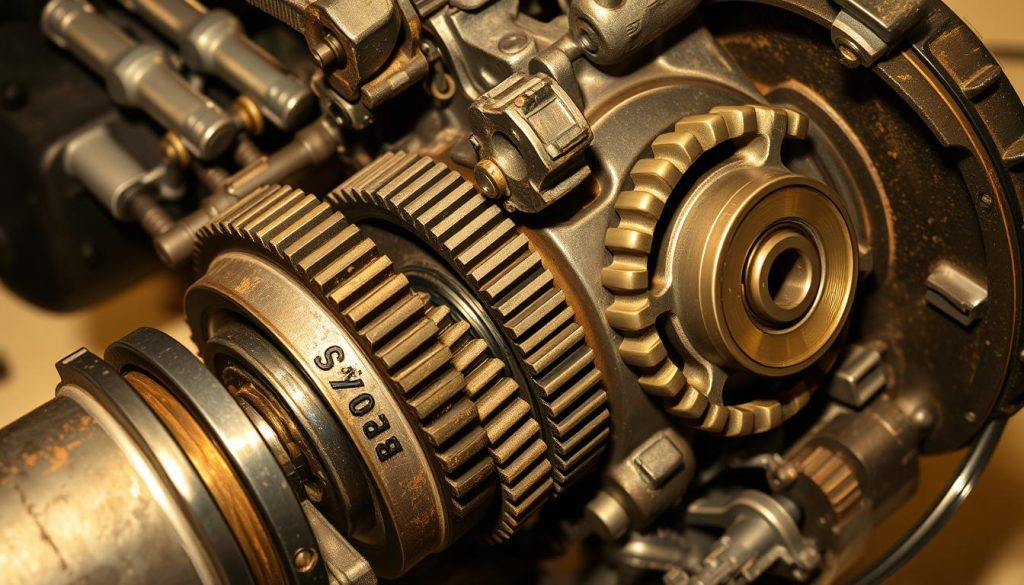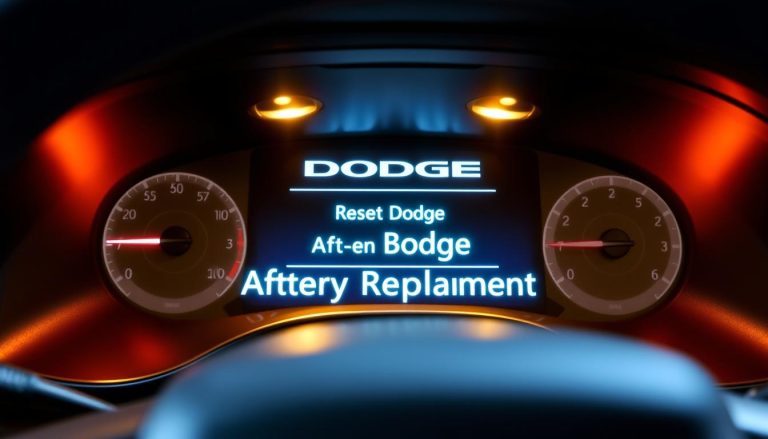Understanding the intricacies of transmission systems is crucial for maintaining the health of your vehicle. Transmission faults can lead to significant issues, affecting performance and safety. Dodge vehicles, like any other, are not immune to these problems.
Issues such as delayed or rough shifting, transmission slipping, and strange noises can be indicative of underlying problems. Ignoring these symptoms can result in increased repair costs, damage to other components, and even complete transmission failure.
Key Takeaways
- Regular maintenance is crucial to prevent transmission faults.
- Symptoms like delayed shifting and strange noises should not be ignored.
- Transmission issues can lead to significant repair costs if left unaddressed.
- Proper diagnosis is key to effective repair.
- Solutions range from fluid changes to transmission replacement.
Understanding Dodge Transmission Systems
Understanding the transmission system in your Dodge is crucial for maintaining its overall health. The transmission is a complex component that plays a vital role in the vehicle’s performance and reliability.
Common Transmission Types in Dodge Vehicles
Dodge vehicles are equipped with various transmission types, including automatic and manual transmissions. The most common automatic transmissions used in Dodge vehicles are the 8-speed and 9-speed automatics, which provide smooth shifting and improved fuel efficiency. Manual transmissions, on the other hand, offer drivers more control over gear shifting.
How Dodge Transmissions Function
Dodge transmissions function by using a combination of mechanical and hydraulic components to transfer power from the engine to the wheels. The transmission’s torque converter plays a crucial role in this process, allowing the engine to continue running while the vehicle is stopped. Regular transmission maintenance, such as fluid checks and filter replacements, is essential to ensure the longevity of the transmission.
Common Dodge Transmission Fault Causes
Understanding the root causes of Dodge transmission faults is crucial for effective repair and maintenance. Dodge transmission faults can arise from a variety of sources, making it essential to identify the underlying causes to apply the appropriate fixes.
Mechanical Failures in Dodge Transmissions
Mechanical failures are a primary cause of Dodge transmission faults. Wear and tear on components such as gears, bearings, and clutch packs can lead to transmission malfunction. Regular maintenance, including timely replacement of worn parts, can help prevent such failures. For instance, the Chrysler 66RFE transmission is known to have specific issues that can be addressed through proper maintenance and repair.

Electrical and Sensor Malfunctions
Modern Dodge transmissions rely heavily on electronic controls and sensors. Malfunctions in these systems can lead to transmission faults, including erratic shifting and failure to engage gears. Diagnosing electrical issues requires specialized tools and knowledge, making it essential to consult professionals for accurate diagnosis and repair.
Transmission Fluid Issues
Transmission fluid plays a critical role in the smooth operation of Dodge transmissions. Low fluid levels, contaminated fluid, or using the wrong type of fluid can all lead to transmission faults. Regular checks and maintenance of transmission fluid are vital to prevent such issues and ensure the longevity of the transmission.
Warning Signs of Dodge Transmission Problems
Recognizing the warning signs of Dodge transmission problems is crucial for maintaining vehicle health. Transmission issues can lead to significant damage if not addressed promptly.
Several key indicators can signal Dodge transmission problems. These include unusual noises and vibrations, shifting difficulties, and fluid leaks.
Unusual Noises and Vibrations
Unusual noises, such as grinding or whining sounds, and vibrations while driving can be indicative of transmission fault symptoms. These noises and vibrations may occur when shifting gears or when the vehicle is in neutral.
Shifting Difficulties and Slipping Gears
Difficulty shifting gears or experiencing slipping gears is another common sign of Dodge transmission problems. This can manifest as a delay in acceleration or a feeling of the gears slipping in and out of place.
Fluid Leaks and Burning Odors
Transmission fluid leaks and burning odors are also significant indicators of potential transmission issues. Low fluid levels or contaminated fluid can lead to overheating, resulting in a burning smell.
Being aware of these warning signs can help Dodge owners identify transmission problems early, potentially avoiding costly repairs.
Diagnosing Dodge Transmission Faults
Dodge transmission diagnosis involves several key steps and techniques. Accurate diagnosis is crucial for resolving transmission issues effectively and preventing further damage.
Using OBD-II Scanners for Transmission Codes
Modern Dodge vehicles are equipped with onboard diagnostics (OBD-II) systems that can provide valuable information about transmission faults. Using an OBD-II scanner, technicians can retrieve trouble codes stored in the vehicle’s computer, which can help identify specific issues.
These codes can indicate problems such as faulty sensors, solenoid issues, or transmission control module malfunctions. It’s essential to consult the vehicle’s repair manual to understand the meaning of the retrieved codes.

Transmission Fluid Inspection Techniques
Inspecting the transmission fluid is a critical step in diagnosing Dodge transmission faults. The fluid’s condition and level can provide insights into the transmission’s health.
To inspect the transmission fluid, follow these steps:
- Check the fluid level using the dipstick.
- Examine the fluid’s color and consistency.
- Look for signs of contamination or degradation.
| Fluid Condition | Possible Issue |
|---|---|
| Low fluid level | Leak or inadequate maintenance |
| Dark or dirty fluid | Fluid degradation or contamination |
| Burning smell | Overheating or friction damage |
When to Seek Professional Diagnosis
While some diagnostic steps can be performed by vehicle owners, complex issues often require professional expertise. If you’re unsure about the diagnosis or if the problem persists after initial checks, it’s recommended to seek help from a certified mechanic or a Dodge dealership.
Professional technicians have the necessary tools and experience to diagnose and repair complex transmission faults, ensuring that your Dodge vehicle is properly maintained.
Step-by-Step Dodge Transmission Repair Guide
Dodge transmission repair can be simplified by breaking down the process into manageable steps. This guide will walk you through the necessary tools, simple DIY repairs, and complex repairs that require professional assistance.
Tools Needed for DIY Transmission Repairs
Before starting any repair, it’s essential to have the right tools. For Dodge transmission repair, you’ll need a set of basic tools such as socket sets, wrenches, and pliers. Additionally, specialized tools like a transmission fluid pump and filter wrench may be required.
- Socket sets and wrenches
- Pliers and punches
- Transmission fluid pump
- Filter wrench
Simple Repairs You Can Perform
Some transmission repairs can be done at home with basic knowledge and tools. Here are a few examples:
Fluid and Filter Replacement
Replacing the transmission fluid and filter is a relatively simple process. It involves draining the old fluid, replacing the filter, and refilling with new fluid. This should be done according to the manufacturer’s schedule to prevent damage.
“Regular maintenance, such as fluid and filter replacement, can significantly extend the life of your Dodge transmission.”
Sensor Replacement and Solenoid Cleaning
Faulty sensors or clogged solenoids can cause transmission issues. Replacing sensors or cleaning solenoids can often resolve problems like slipping or hesitation. It’s crucial to consult your repair manual for specific instructions.
Complex Repairs Requiring Professional Help
While some repairs can be done DIY, complex issues like rebuilding or replacing the transmission require professional expertise. If you’re experiencing severe symptoms like persistent slipping or failure to engage gears, it’s best to seek help.
| Repair Type | Complexity Level | Recommended Approach |
|---|---|---|
| Fluid and Filter Replacement | Low | DIY |
| Sensor Replacement | Moderate | DIY with caution |
| Transmission Rebuild/Replacement | High | Professional |
By following this step-by-step guide, you’ll be better equipped to handle Dodge transmission repairs, whether you’re doing it yourself or seeking professional help.
Cost Considerations for Dodge Transmission Repairs
Transmission repair costs for Dodge vehicles can be substantial, making it vital to comprehend the expenses involved. When your Dodge transmission fails, the financial implications can be significant, and understanding these costs is crucial for making informed decisions about repairs.
DIY Repair Costs vs. Professional Service
One of the primary considerations when facing transmission repairs is whether to opt for a DIY approach or seek professional service. DIY repairs can be cost-effective, with parts and tools potentially costing between $500 to $1,500. However, this approach requires significant mechanical knowledge and specialized tools. On the other hand, professional services offer expertise and warranties but can range from $1,000 to $3,000 or more, depending on the complexity of the repair.
Transmission Rebuild vs. Replacement Expenses
Another critical decision is whether to rebuild or replace the transmission entirely. A transmission rebuild involves replacing damaged components, which can cost between $1,500 to $3,500. This option is often less expensive than a full replacement but may not be as durable. A transmission replacement, whether with a new or remanufactured unit, can range from $2,000 to $5,000 or more, depending on the vehicle’s make and model.
Understanding these cost considerations is essential for Dodge owners facing transmission issues, allowing them to make informed decisions about their vehicle’s repair.
Conclusion
Regular maintenance is crucial in preventing Dodge transmission faults. By understanding the common causes of transmission problems and recognizing warning signs, vehicle owners can take proactive steps to address issues before they become major repairs.
A well-maintained transmission is essential for the overall performance and longevity of a Dodge vehicle. Proper diagnosis and timely repairs can help prevent further damage and reduce the need for costly transmission replacements.
By following the guidelines outlined in this article, Dodge owners can ensure their vehicle’s transmission operates smoothly and efficiently. Regular Dodge transmission maintenance, including fluid checks and inspections, can help identify potential issues early on, reducing the risk of transmission failure.
In summary, a comprehensive transmission repair summary involves understanding the causes of transmission faults, recognizing warning signs, and performing regular maintenance. By taking a proactive approach, Dodge owners can help extend the life of their vehicle’s transmission and avoid costly repairs.
FAQ
What are the common signs of a Dodge transmission fault?
Common signs include unusual noises, vibrations, shifting difficulties, slipping gears, fluid leaks, and burning odors.
How can I diagnose a Dodge transmission fault?
Diagnosis involves using OBD-II scanners to retrieve transmission codes, inspecting transmission fluid, and seeking professional help when necessary.
What are the causes of Dodge transmission faults?
Causes include mechanical failures, electrical and sensor malfunctions, and transmission fluid issues such as low fluid levels or contaminated fluid.
Can I repair a Dodge transmission fault myself?
Simple repairs like fluid and filter replacement can be done DIY, but complex repairs often require professional assistance.
How much does it cost to repair a Dodge transmission?
Costs vary depending on the type of repair, with DIY repairs being generally less expensive than professional services, and transmission rebuilds potentially costing less than full replacements.
What is the difference between a transmission rebuild and replacement?
A transmission rebuild involves replacing worn or damaged parts, while a replacement involves installing a new or remanufactured transmission.
How can I prevent Dodge transmission faults?
Regular maintenance, including fluid checks and changes, and addressing issues promptly, can help prevent transmission faults.
What type of transmission fluid should I use in my Dodge?
The type of transmission fluid to use depends on the specific Dodge model and transmission type, as specified in the owner’s manual or manufacturer’s guidelines.


